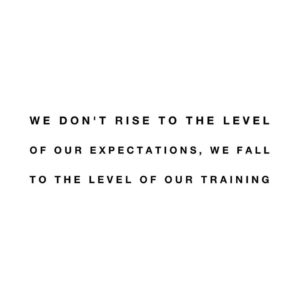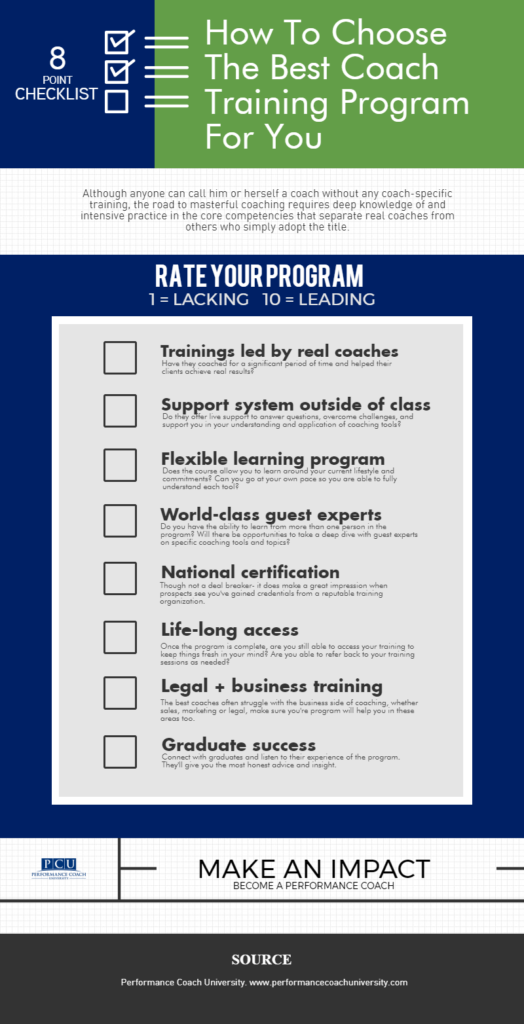Selecting the Right Coaching Certification for You!
No more than a decade ago, the only people that seemed to have a coach were athletes. Today coaching is not just for athletes, it’s for everyone. Supply and demand of coaches have increased from health coaches, career coaches, business coaches to performance coaches.
You name the topic, there’s a type of coach for it out there, which means there’s also an increased number of coach training certifications available too. That’s why we created a checklist to choose the best coach training program for you.
Does that mean every coach is a great coach? Absolutely not. It doesn’t even mean they’ve been properly trained to BE a coach. This can be disastrous for the coaching client and for the coaching industry.
The good news is, we’ve made a great tool you can use to vet out the best coach training certification for you.
If you’re considering becoming a coach or advancing your coaching skill set to be able to make an even bigger impact on your clients, it’s important to find the best coach training program out there for you. Not all coach training programs are the same.
So what’s our take on it? At Performance Coach University, we believe in flexibility, support, and world-class training from the best of the best. Our performance coach tools are tried and true and have brought incredible, long-lasting results to our own personal coaching clients and the clients of our coaches.
We believe, if you want to become a performance coach, you need proper coach training, but not just by anyone out there. The best coach training programs are led by REAL coaches, who actually coach for a living and have an incredible track record as a coach. (You’d be surprised how many training programs are taught by people who aren’t even coaches…)
It’s our mission to provide you with not only foundational coaching tools but the latest and greatest research and tools available. Plus you have life-long access to the world’s best coaches teaching you in our 12-week online performance coach training program.
Be sure to use the coach training program checklist to make sure any program you’re looking at investing your time, money and energy to is the best choice for you!
Click This Link or the Image below to download!
Becoming a Better Coach Through Self Reflection
This article from Mind in Motion has amazing points on the importance of reflective practice and its benefits:
“Reflective Practice
Reflection is at the heart of the learning process. It is a necessary component in learning to
regulate one’s thoughts, feelings and actions. Reflection links experience and knowledge by
providing an opportunity to explore areas of concern in a critical way and to make adjustments
based on these reflections. This exploration enhances learning and promotes coaches’ abilities to
identify and respond to cues within the environment.”
“Self Awareness
It is important to note here, that whether or not coaches are triggered by certain experiences will
relate to their personal approach to coaching and their level of self-awareness. For example, with
respect to personal approach, if discipline and winning defines a coach’s personal approach, then
that coach is more likely to be triggered by athletes who arrive late or do not adhere to training
programs in comparison to a coach whose approach is defined by fun and personal growth and
development. Therefore, part of reflective practice entails coaches assessing their personal
approach to coaching and taking responsibility for how their approach may be influencing their
actions and reflections. Further, coaches who are self-aware or more attuned to their internal
states, behaviours, and intuitions, are more likely to be aware of, and respond to, cues within the
environment that indicate something is amiss.”
Read the Full Article via the source: http://www.mindinmotion.ca/articles/lgfarres_reflective_practice.pdf
To Your Success,
Jairek


